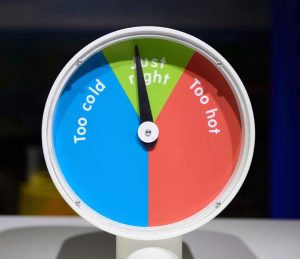 Because our winter weather is mild, to say the least, many homeowners in our area feel that a designated heating system is a bit of overkill. Now, those homeowners also realize that they still need dependable heaters to make it through the occasional cold night comfortably. They just may be hesitant to invest in a system that is solely used for heating their homes. That is why the heat pump is such an incredibly popular type of system in our area.
Because our winter weather is mild, to say the least, many homeowners in our area feel that a designated heating system is a bit of overkill. Now, those homeowners also realize that they still need dependable heaters to make it through the occasional cold night comfortably. They just may be hesitant to invest in a system that is solely used for heating their homes. That is why the heat pump is such an incredibly popular type of system in our area.
The heat pump, as you may know, is an HVAC system that allows homeowners to both heat and cool their homes throughout the year. That means that you can use just one system in order to keep comfortable all year long. We’ll get further into the specifics of how this works in the post below. Here’s a sneak preview, though—it’s all thanks to the refrigerant cycle. That is why a refrigerant leak in your heat pump in Brooksville, FL is such a problem.
What Purpose Does the Refrigerant Serve?
The refrigerant in your heat pump, or in any air conditioning/refrigeration system, for that matter, operates as the heat transfer fluid. Remember, refrigerators and air conditioners are not somehow producing coolness, the way that a heater may combust fuel or use electric resistance in order to generate new heat. Instead, these systems use refrigerant to remove heat from the air. A heat pump uses the refrigerant it contains in the same manner, with one major twist—they can reverse the flow of the refrigerant and the operation of the system as a whole.
In the summer, a heat pump evaporates its refrigerant in the indoor coil. In a central AC, this indoor coil is always the evaporator coil. As the refrigerant evaporates, it draws heat out of the air surrounding the coil. The refrigerant then travels outside and is condensed in the outdoor coil, which is always the condenser coil in a central AC. When the heat pump switches to heating mode, however, the function of these coils (along with the directional flow of the refrigerant) is reversed. Refrigerant is evaporated in the outdoor coil, absorbing heat from the air outside. The compression cycle boosts its thermal energy, and it is condensed in the indoor coil, with its heat serving to warm the living space.
Signs of a Refrigerant Leak
To put it simply, a heat pump is not going to be able to do its job properly with a low refrigerant charge. These systems don’t consume refrigerant, so a low charge means either an insufficient charge at the time of installation, or a leak. You’ll notice a number of symptoms and problems if your heat pump is low on refrigerant.
The system is going to struggle to transfer heat successfully, so a decreased heating/cooling output is one of the most common and early red flags. Short cycling may develop, in which the system starts up and shuts back down far too rapidly due to overheating resulting from the strain of its compromised operation. You may actually hear a hissing sound as pressurized gas escapes the system from the leak point, and frost or ice may develop on the refrigerant lines. If you notice any such symptoms, contact a member of our team right away.
Bayonet Plumbing, Heating & Air Conditioning can handle all of your heat pump services properly.









